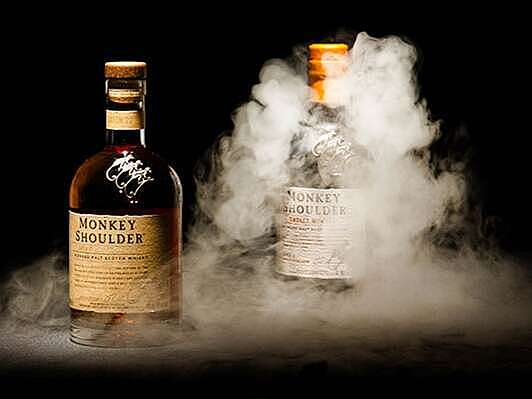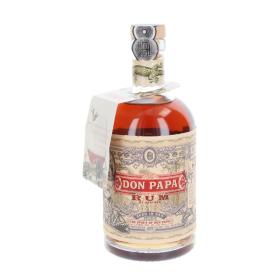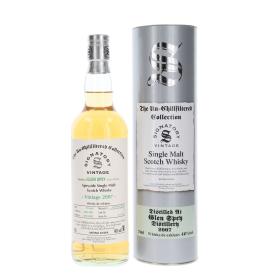A journey of discovery into the world of smoky whisky
Smoky whisky has a special fascination that delights whisky lovers worldwide - whether in single malt or blended whisky. For anyone who has not yet ventured into whiskies with peat smoke, it is time to embark on a voyage of discovery into the world of smoky whiskies.
What does smoky mean with Whiksky?
Smoky in whisky refers to the intense flavour and smell of peat smoke that develops during the production process. This smoky character is created when the malt is dried over a peat fire. Phenols are released when the peat burns, which accumulate in the malt and later pass into the whisky during distillation and maturation. These phenols are responsible for the smoky flavours.
The unit of measurement is ppm!
The intensity of the smoky flavour is measured in "ppm" (phenol parts per million). This unit of measurement indicates how many phenolic compounds - the main carriers of the smoky flavour - are contained in the whisky. The longer the barley is exposed to peat smoke, the more intense the smoky flavour becomes in the end product. An outstanding example is the Octomore from the Bruichladdich distillery, which is considered to be the peatiest and smokiest whisky on the market.
The strength of the peat
The intensity of the peat flavour can be finely controlled by the amount of peat used during the drying process. This control of smoke intensity is crucial to give the whisky its specific smoky character.
What does smoky Whisky taste like?
Smoky whisky is characterised by a variety of aromas, ranging from slightly smoky to intensely peaty. Typical flavours include notes of campfire smoke, tar, seaweed and medicinal hints. Some smoky whiskies also have a certain sweetness that provides an interesting contrast to the strong smoke. The balance between smoke and other flavours depends heavily on the specific production method and the ingredients used.
Peat
Depending on the region, peat consists of different plant substances that give the whisky its unique regional character. On the island of Islay, for example, the peat contains seaweed, which leads to maritime smoky flavours, while the peat from the Highlands produces more woody and earthy notes. You can find out more about peat and its importance in whisky here!
Which Whiskies are smoky?
Smoky whisky is particularly characteristic of certain regions of Scotland. Most smoky whiskies can be found on the island of Islay in the inner hybrids: Ardbeg, Bowmore, Caol Ila, Kilchoman, Lagavulin and Laphroaig. Whiskies from the Isle of Skye, such as Talisker, often have a maritime, salty character that complements the smoke. But there are also distilleries on the Scottish mainland that produce smoky whiskies, such as Ardmore and Highland Park.
The top seller is and remains Lagavulin! But all the other distilleries are also worth a try.
Which distilleries still malt themselves?
A few distilleries such as Bowmore, Kilchoman and Laphroaig adhere to the traditional method and still malt some of their own barley malt over peat fires. The use of peat and the composition vary from region to region, giving each smoky whisky a unique, terroir-specific flavour. Outside the island of Islay, Highland Park and Springbank use their own malted grain, with Springbank producing all of its own malt requirements.
The vast majority of barley malt is sourced by all distilleries from large malt houses.
Conclusion
Smoky whiskies offer a fascinating taste experience and are a must for all whisky lovers who are looking for intense and complex flavours. The art of balancing smoke and other flavours makes every smoky whisky a special treat - whether slightly smoky or intensely peaty.































To comment, you must be logged in